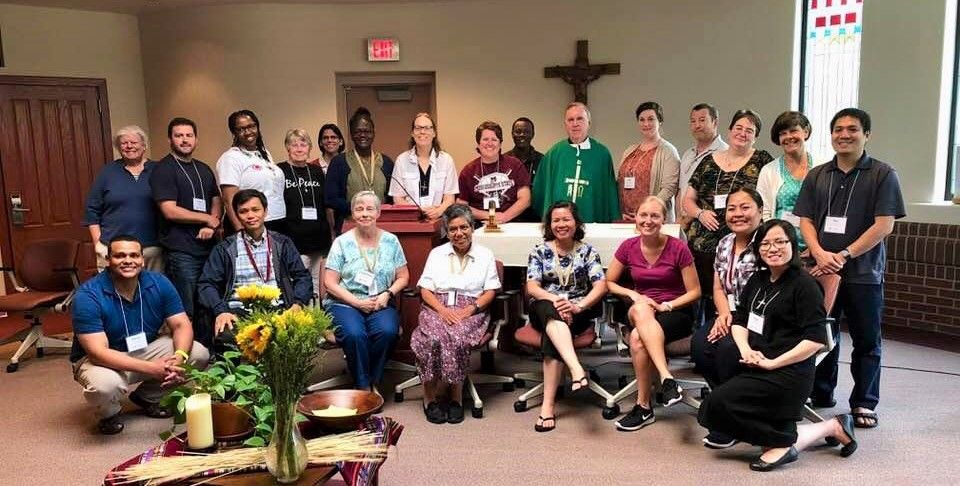It's often said that "nothing lasts forever," usually when something that once seemed constant or timeless turns out not to be. It seems we hear that more often, as marriages implode, technology advances and species go extinct. The only thing that's constant is change, and today’s young people are witnesses to change at an amazing pace.
In some ways, the instability of life makes permanent commitments all the more intriguing and appealing. While many folks think that the committed life of sisters is dying or becoming irrelevant, a young sister writes that living her vows forever is still possible.
As the pace of life picks up and attention spans decline, our appreciation for time fades. Values such as patience and persistence seem quaint or become obsolete. Reconnecting with the gift of time can provide perspective on the long-haul commitments we might be called to make later in our life journey.
Note: Use a watch, clock or the stopwatch function on your phone to time this activity. Adjust the duration if more time or less works better for your group.
Ask students to place their phones and watches under their desks or chairs, then be seated and close their eyes.
Announce: "I’m going to time this activity for two minutes. All you have to do is raise your hand when you think two minutes have elapsed. Keep it raised and don’t open your eyes until I tell you to. We’re starting… now."
Watch students to make sure they keep their eyes shut. Observe their facial expressions and note whether they might be counting to themselves. If possible, keep track of when each student raises their hand.
If all students have raised their hands before two minutes elapse, tell them to open their eyes at the two-minute point. If one or more have yet to raise their hand, make a sneezing noise at two minutes (to mark the time). Ask students to open their eyes when all have raised their hands, or at the three-minute point, whichever comes first.
- Share the following questions or observations:
- Ask the student who first raised a hand whether they were surprised at how long two minutes really is.
- If all students raised their hand before two minutes passed, ask what made this challenge so difficult.
- Ask the student who raised their hand closest to the two-minute point how they sensed that two minutes was near, or did they just guess.
- If one or more students waited beyond two minutes, mention that your sneeze marked the two-minute point and ask what led them to wait so long and whether they were surprised they went over two minutes.
Conclude with this or a similar thought:
"Our perspective passage of time, whether it be minutes or years, can be warped when time becomes our only focus. Having a sense of purpose and commitment in how we live each moment, especially when this becomes life-giving for ourselves and others, helps us endure no matter the duration or obligation. People who take vows in religious life find meaning and grace in their lives to make their 'forever' commitments possible."
Lord, be with us in this moment, and the next, and the one after that.
Help us to count neither the minutes nor the cost.
Instead, help us to place our trust in you and our focus on your will for us.
Give us the patience to live life in your time, not ours.
Bless us with causes and people to live for.
Grant us strength to commit ourselves to something worthy, something forever.
Amen.
Please give us your feedback! Fill out a quick survey about this lesson and how we can serve you better. Remember that its title is "The permanence of commitment"
Tell us what you think about this resource, or give us ideas for other resources you'd like to see, by contacting us at [email protected]
